Table of Contents
As a husky owner, one of the most important aspects of caring for my furry friend is keeping them clean and well-groomed. However, I often find myself wondering how often I should be bathing my husky. After all, I don’t want to overdo it and dry out their skin, but I also don’t want them to be dirty and smelly.
So, how often should you wash a husky? The answer may surprise you. While many people assume that dogs need to be bathed frequently, this is not the case for huskies. In fact, over-bathing can actually be harmful to their skin and coat.
In this article, I will explore the topic of how often you should wash your husky, taking into account factors such as their breed, coat type, and lifestyle. By the end of this article, you will have a better understanding of how to keep your husky clean and healthy without overdoing it on the baths.
Why Regular Bathing is Important for Huskies
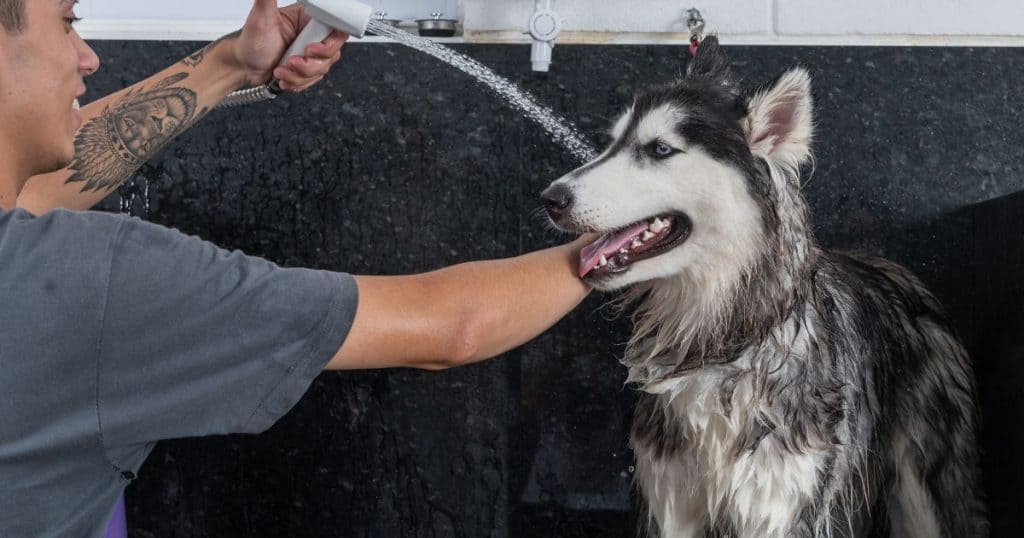
As a husky owner, I know how important it is to keep my furry friend clean and fresh. While huskies are known for their thick and beautiful coats, they can also be prone to certain skin issues if not properly cared for. Regular bathing is an essential part of husky grooming that can help keep their skin and coat healthy and shiny.
One of the main reasons why regular bathing is important for huskies is that it helps to remove dirt, debris, and other irritants from their coat and skin. Huskies are an active breed that loves to explore and play, which means they can easily pick up dirt, dust, and other particles that can cause skin irritation or infections. By bathing your husky regularly, you can help to keep their coat and skin clean and free from these irritants.
In addition to removing dirt and irritants, regular bathing can also help to prevent matting and tangling of your husky’s coat. Huskies have a thick double coat that requires regular brushing and grooming to prevent matting and tangling. By bathing your husky regularly, you can help to keep their coat clean and free from tangles, making it easier to brush and groom.
Another important reason why regular bathing is important for huskies is that it can help to prevent skin infections and other skin issues. Huskies are prone to certain skin conditions, such as hot spots and dermatitis, which can be caused by bacteria or other irritants. By bathing your husky regularly with a gentle, vet-endorsed shampoo, you can help to keep their skin clean and healthy, reducing the risk of these types of skin issues.
Overall, regular bathing is an essential part of husky grooming that can help to keep your furry friend healthy, happy, and looking their best. By following a regular bathing schedule and using the right products, you can help to keep your husky’s coat and skin in top condition for years to come.
Factors to Consider When Deciding How Often to Bathe Your Husky
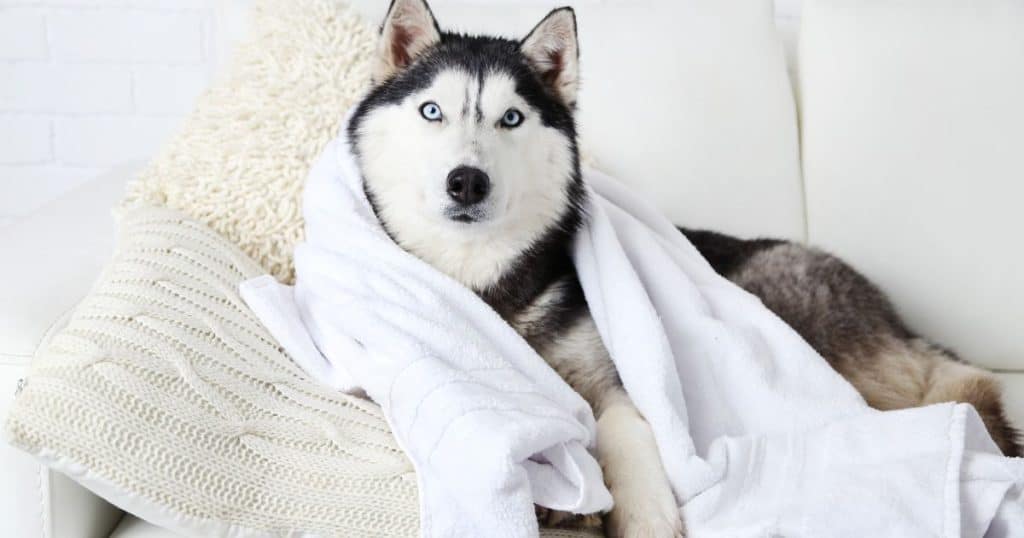
As a husky owner, I know that keeping your furry friend clean is essential to their health and happiness. However, it can be challenging to determine how often to bathe your husky. Factors such as coat type, activity level, and skin sensitivity can all play a role in determining the frequency of baths.
Coat Type
The type of coat your husky has can determine how often they need to be bathed. Huskies have a thick double coat that protects them from harsh weather conditions. This coat can trap dirt and debris, making it necessary to bathe them occasionally. However, over-bathing can strip their coat of natural oils, leading to dry skin and irritation.
If your husky has a healthy coat, you can bathe them every three to four months. However, if they have a skin condition or are prone to allergies, you may need to bathe them more frequently.
Activity Level
The activity level of your husky can also impact how often they need to be bathed. If your husky is active and spends a lot of time outdoors, they may get dirtier than a less active husky. In this case, you may need to bathe them more frequently.
On the other hand, if your husky is more of a couch potato, they may not need to be bathed as often. However, it’s still important to keep an eye on their coat and skin to make sure they don’t develop any issues.
Skin Sensitivity
Huskies can have sensitive skin, which can make them prone to irritation and dryness. If your husky has sensitive skin, you may need to bathe them less frequently and use a gentle shampoo designed for dogs with sensitive skin.
It’s also essential to avoid using human shampoo or other products that can be harsh on your husky’s skin. Stick to products specifically designed for dogs to keep their skin and coat healthy and happy.
How Often Should You Wash a Husky?
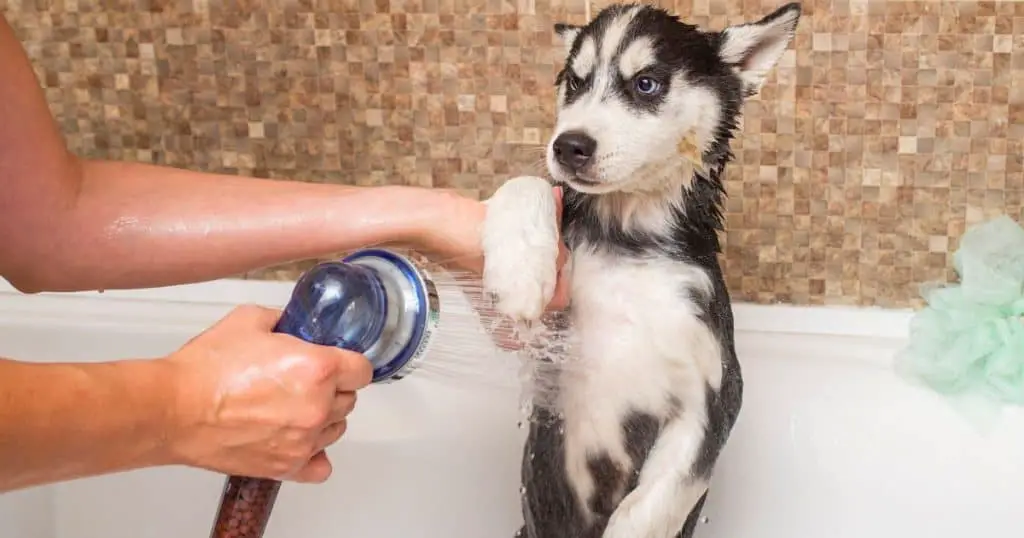
As a husky owner, I know how important it is to keep my furry friend clean and fresh. But how often should you wash a husky? The answer is not as simple as you might think.
It depends on several factors, including your husky’s skin and coat type, activity level, and overall health.
In this section, I’ll break down the ideal bathing frequency for huskies with different skin conditions and coat types.
Bathing Frequency for Huskies with Normal Skin and Coat
If your husky has normal skin and coat, you should bathe them once every three or four months. This is a good average to go by, and it’s not too little or too much. Some owners bathe their husky even less and never report any skin, coat, or odor problems. But keep in mind, you may need to bathe your husky unexpectedly if they get into something dirty or smelly.
Bathing Frequency for Huskies with Sensitive Skin or Allergies
If your husky has sensitive skin or allergies, you should bathe them less frequently to avoid irritating their skin. Bathing them once every six months or less is usually enough to keep them clean and comfortable. However, you should consult with your vet to determine the best bathing frequency for your husky’s specific condition.
Bathing Frequency for Huskies with Skin Conditions
If your husky has a skin condition, such as dry skin or dandruff, you may need to bathe them more frequently to help alleviate their symptoms. In this case, you should consult with your vet to determine the best bathing frequency for your husky’s specific condition. They may recommend bathing them once every two months or even more frequently if necessary.
In conclusion, there’s no one-size-fits-all answer to how often you should bathe your husky. It depends on several factors, including their skin and coat type, activity level, and overall health. By following the guidelines in this section, you can keep your husky clean and comfortable without over-bathing them.
Tips for Bathing Your Husky

As a husky owner, I know how important it is to keep my furry friend clean and healthy. Bathing your husky can be a daunting task, but with the right tools and techniques, it can be a breeze. In this section, I will share some tips on how to make bath time a positive experience for both you and your husky.
Grooming Before Bathing
Before you start bathing your husky, it’s important to groom them properly. Brushing your husky’s coat before bathing can help remove any mats or tangles, making the bathing process easier and more effective. Use a slicker brush or a comb to gently remove any loose hair, dirt, or debris from your husky’s coat. This will also help distribute the natural oils in your husky’s fur, keeping it shiny and healthy.
Choosing the Right Shampoo
Choosing the right shampoo is crucial when it comes to bathing your husky. Huskies have sensitive skin, so it’s important to use a shampoo that is specifically designed for dogs. Look for a mild, hypoallergenic shampoo that is free of harsh chemicals and fragrances.
Avoid using human shampoo or dish soap, as they can be too harsh and can strip your husky’s coat of its natural oils.
When choosing a shampoo, also consider your husky’s coat type. If your husky has a thick double coat, look for a shampoo that is designed to penetrate deep into the fur, such as a de-shedding shampoo. If your husky has a dry or itchy coat, look for a moisturizing shampoo that can help soothe their skin.
Bathing Techniques
Now that you’ve groomed your husky and chosen the right shampoo, it’s time to start bathing. Fill a bathtub or a large basin with lukewarm water, making sure it’s not too hot or too cold. Wet your husky’s coat thoroughly, avoiding their face and ears. Apply the shampoo and lather it gently into your husky’s coat, using a sponge or your hands. Rinse thoroughly, making sure to remove all the shampoo from your husky’s coat.
After rinsing, use a towel to gently dry your husky coat. Avoid using a hair dryer, as the heat can damage your husky’s skin and coat. If your husky has a thick double coat, use a de-shedding tool to remove any loose hair. Don’t forget to reward your husky with treats and praise for good behavior during bath time.
By following these tips, you can make bath time a positive experience for your husky and keep them clean and healthy. Remember to always be gentle and patient, and never force your husky into the bath if they’re not comfortable with it.
FAQs
Now that you know how often you should bathe your husky, you might still have some questions. Here are some of the most frequently asked questions about husky bathing:
How do I know if my husky needs a bath?
If your husky has a strong odor or is visibly dirty, it’s probably time for a bath. However, be careful not to over-bathe your husky, as this can strip their coat of natural oils and cause skin irritation.
Can I use human shampoo on my husky?
No, you should never use human shampoo on your husky. Human shampoo is not designed for a dog’s sensitive skin and can cause dryness and irritation. Instead, use a shampoo specifically formulated for dogs.
How can I make bath time less stressful for my husky?
Many huskies do not enjoy bath time, so it’s important to make the experience as stress-free as possible. Try using treats and positive reinforcement to encourage your husky to get in the bath, and use a calming voice to reassure them throughout the process.
What should I do if my husky hates baths?
If your husky really hates baths, you may need to find alternative ways to keep them clean. Regular brushing and grooming can help remove dirt and debris from their coat, and you can also try using dry shampoo or wipes designed for dogs.
How often should I clean my husky’s ears?
You should clean your husky’s ears once a month, or as needed if they appear dirty or irritated. Use a gentle ear cleaner designed for dogs, and be careful not to insert anything into the ear canal.
Before You Go
So, after researching and considering various sources, I’ve come to the conclusion that washing your husky too frequently can do more harm than good. While some owners may prefer to bathe their huskies more often, it’s generally recommended to bathe them once every three to four months. This will help maintain their natural oils and keep their coat healthy and shiny.
It’s important to keep in mind that every husky is different, and their bathing needs may vary based on their activity level, environment, and overall health. If your husky spends a lot of time outdoors or gets particularly dirty, you may need to bathe them more often. On the other hand, if your husky has sensitive skin or is prone to dryness, you may need to bathe them less frequently.
Aside from bathing, there are other important aspects of husky grooming that you should keep in mind. Regular brushing is key to keeping their coat healthy and free of mats and tangles. You should also trim their nails regularly and clean their ears and teeth as needed.
Ultimately, the key to keeping your husky healthy and happy is to pay attention to their individual needs and take a proactive approach to their care. With a little bit of effort and attention, you can help your husky look and feel their best for years to come.


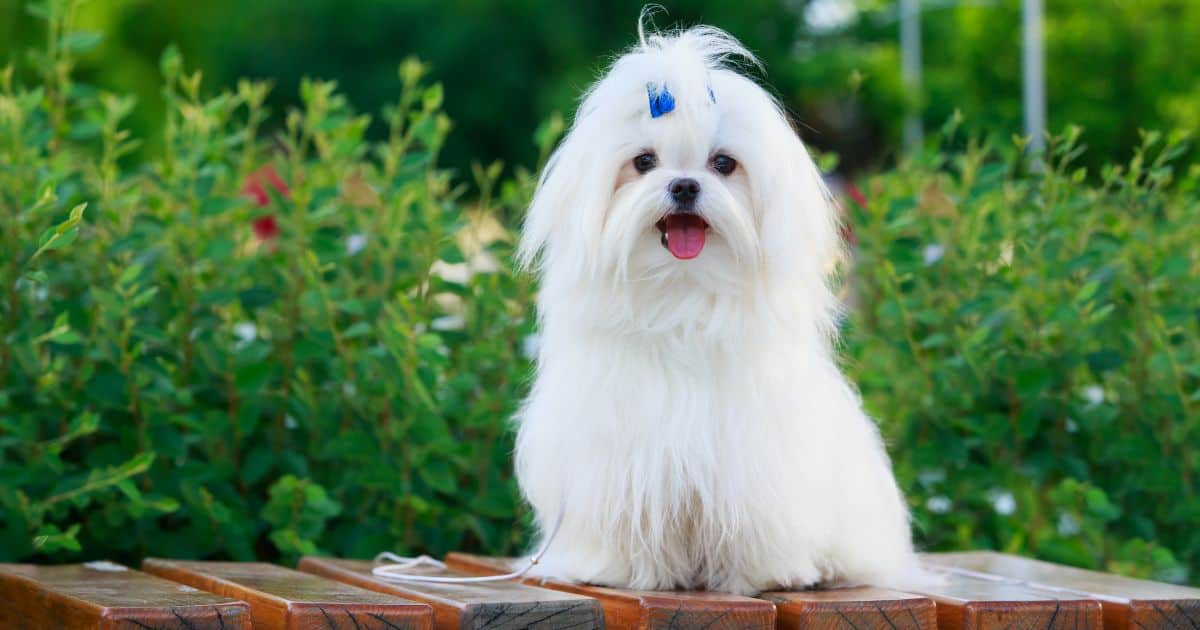
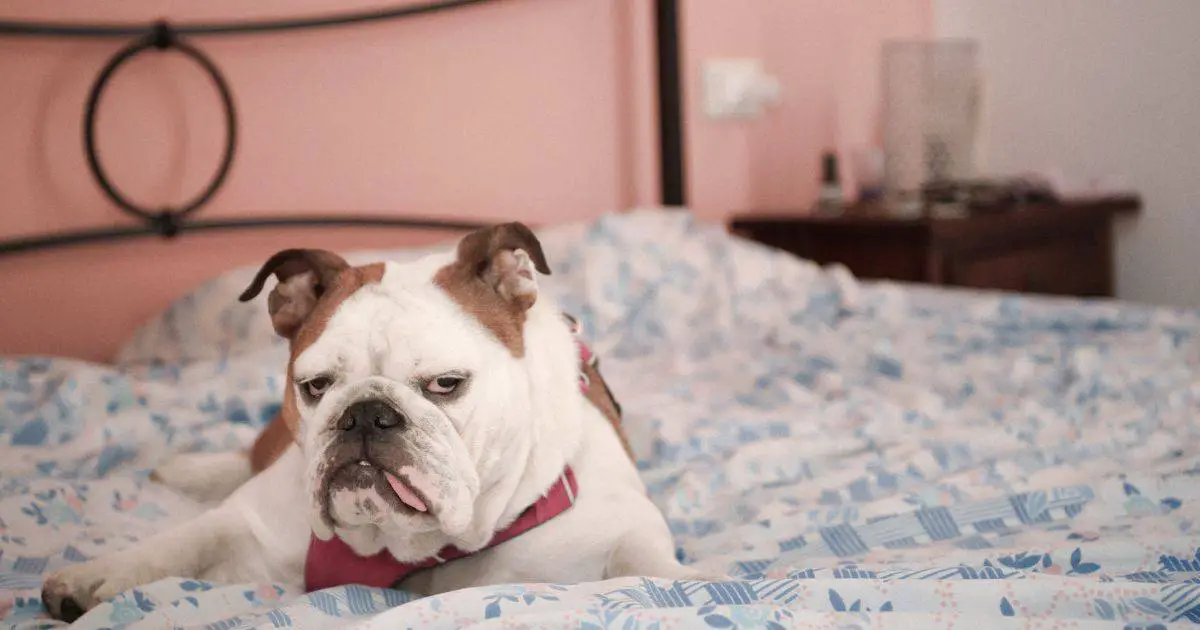
Leave a Reply
You must be logged in to post a comment.